Planning is important in your professional and personal lives, but it’s not everything. As a Program Manager, I make sure that I have plans on how to manage the project and any risks that come about. As a mom and homeowner, I plan the week to make sure that I am present with my kids and keeping the house running. I also make sure to have plans for our dogs. However, one thing that I have learned is that not everything is planning. If you get stuck in the planning phase, you will never get started. For this blog and true-crime podcast, I have created business and marketing plans. I knew that I needed to start, so I didn’t go into the amount of detail that someone who is looking for funding might need because I am funding it myself. I made sure to have enough that will help me get started and keep me focused on the end goal.
Research is Vital
An essential part of creating plans is research. I spent about a week researching my target market, my competitors, and the overall business. Even if the business plan is just for you, I recommend that you take the time to see what is happening around you. For me, I know that there are a lot of lifestyle blogs and true-crime podcasts, so I thought about what I wanted to bring. After a week, I got started. I created sites and social media accounts. For the podcast, I watched a couple of YouTube accounts on how to use GarageBand to created a podcast and got to work. Doing research made it easier to get started and get to work.
What Parts to Include
Different sections make up the business and marketing plan. Sometimes you can even include the marketing plan within the business plan as a section. However, I recommend that you reference the marketing plan, but keep it separate.
In the business plan, you should probably consider having the following sections:
- Executive Summary – An overall view of your business or side hustle. Who are you? What benefits can you bring to your clients/customers?
- Company Information – This should include your name, location, business setup (i.e., LLC, sole proprietorship, S-corporation, etc.), and company milestones. If you are creating a blog or podcast, you will start as a sole proprietorship.
- Services – What are your services? What is your blog/podcast/YouTube about?
- Target Market – Who is your target market? Characteristics? Location? Buying patterns?
- Competition – Who is your competition? What is the analysis of them? What makes you unique?
- Operations – Details on how you will run your business. How much are you going to post? How much are you going to create social media content?
- Cost – Your costs and future ones. I currently have subscriptions for Tailwind and Buzzsprout. I also have my web site costs. These are the type of things you have to think about when thinking about your business budget. When you have a more established business, then you will have to think about this because these are the questions you will get from investors, so make sure you are intimate with those numbers.
- Long-Term Goals – What do you want to happen in the long run
- Marketing Strategy – How will you get your business to be known to your target market? The main strategies should be listed here.
- Marketing Mix Service – Details on the main strategies
What Do I Do With Them?
Planning will help you in reaching your dreams, but they aren’t everything. As a perfectionist, I have finally come to terms that not everything will be perfect. Your first podcast is going to suck, but all you can do is get better. You might fail, but at least you tried. You will also learn from your failures, and so keep going. There might be additional sections that you might have to add, depending on what you are doing, but these sections I referenced are enough to get you started. Do not wait until tomorrow to start. Start today.


